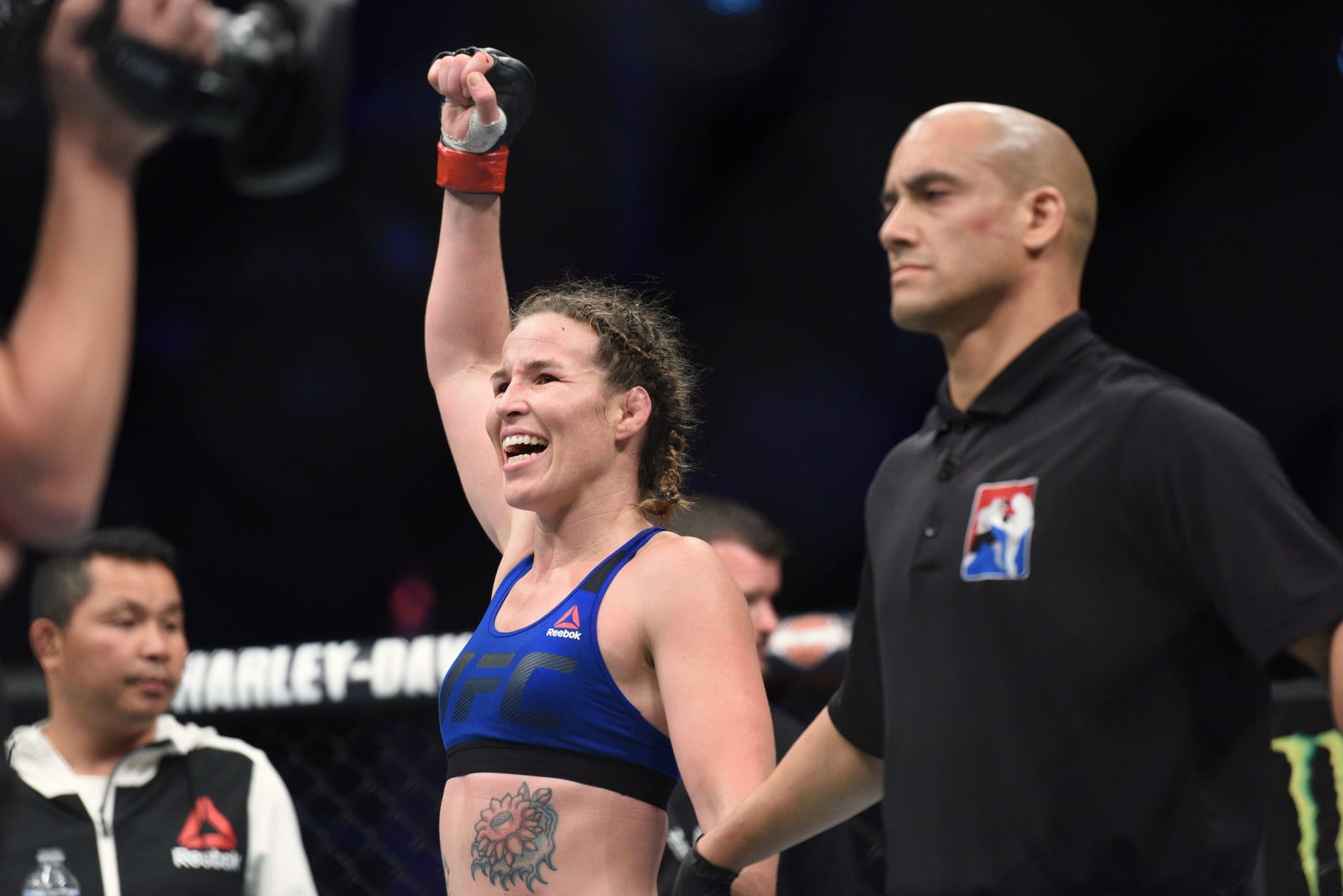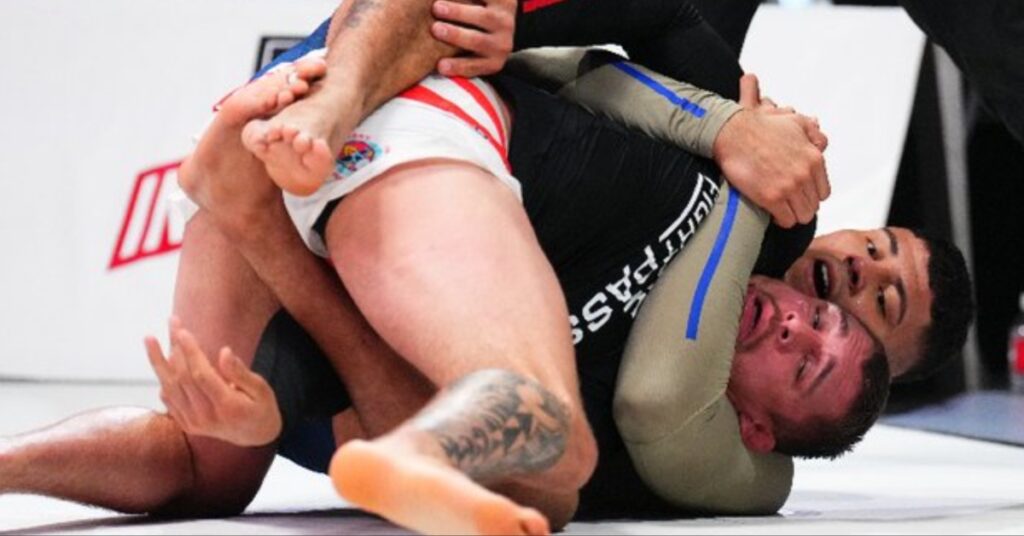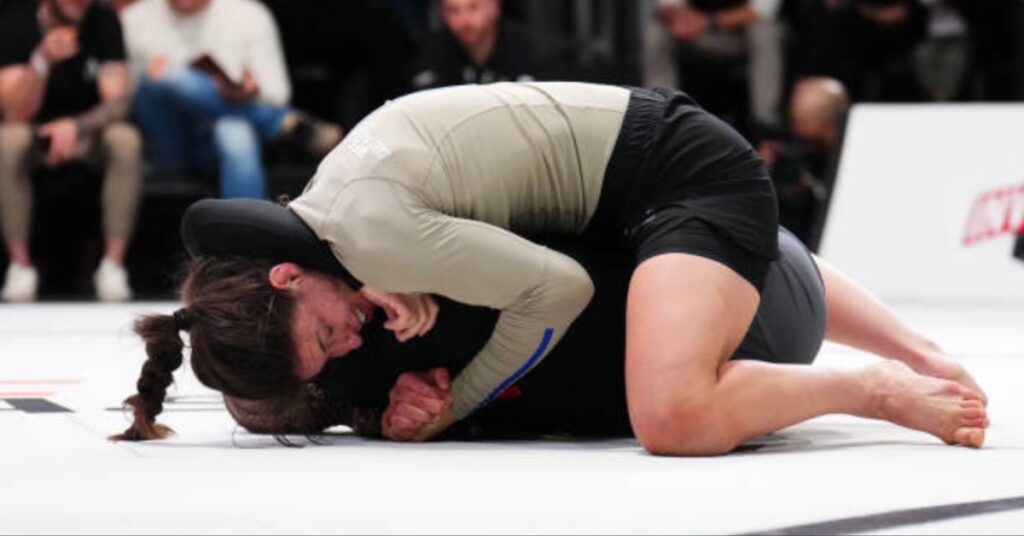Leslie Smith Plans To Sue UFC For Buying Her Out

A unique scene unfolded at last weekend’s UFC Atlantic City.
When women’s bantamweight competitor Aspen Ladd missed weight by 1.8 pounds for her preliminary card bout versus Leslie Smith, Smith refused to take the fight against her overweight opponent. Certainly an acceptable response, although not one wholly seen too often in the UFC. But it was what happened when the UFC responded to Smith’s decision to not compete in what was the last fight on her UFC contract.
The world’s biggest MMA promotion decided to pay Smith her show money and win bonus for the card, totaling $62,000, and then branded her a free agent after deciding not to extend her contract. It was a strange scene full of several working parts considering Smith is the president of Project Spearhead, an effort to make the government decide if UFC fighters are employees or the independent contractors they’re currently considered.
So it wasn’t really surprising to hear the UFC had refused to extend Smith’s contract given their prior relations with labor-focused groups and individuals, but the timing of the whole situation and how it went down made it a curious one that will most likely shape a part of the inevitable labor dispute between fighters and the UFC to come.
And that scope of attention could get a lot bigger, as Smith revealed on this week’s episode of The MMA Hour that she believes the UFC tried to pay her off, and she would be taking legal action against them with the National Labor Relations Board (NLRB) in addition to a state court in California.
In the eyes of “The Peacemaker,” what the UFC did was illegal because they created a culture of fear to dissuade other fighters from standing up for their rights:
“It’s my opinion that what the UFC did was illegal. Because they have created a situation where it encourages a climate of fear where the other people in the UFC on the roster are going to be fearful of publicly organizing and standing up for their rights.
“By creating a climate of fear, that violates federal law. That’s the whole point of the National Labor Relations Board and the laws that are in there.”
Smith also detailed that she was surprised when the UFC let her go because she thinks it will paint a clear picture of how they treat and consider fighters who attempt to stand up to them in the current climate:
“I am surprised. I think that it opens up an examination of how they feel about my activities in organizing the fighters recently. I think by doing unusual behavior, it’s going to ask what are the unusual circumstances leading to this?”
Always at the forefront for the fight for improved labor conditions for fighters, Smith also discussed why she couldn’t take the fight with Ladd after the UFC told her they would pay her the full win purse. In her opinion, she would have then been fighting for free, something fighters have simply done too much due to pride:
“I feel like if I didn’t do that at this point, it wouldn’t be living up to everything I’ve been talking about,” Smith said. “That’s why I couldn’t take the fight once they offered me the $62,000, because then I would be fighting for free. And that’s been my whole point this whole time. We shouldn’t be manipulated by pride. We need to look at ourselves as a business and fight for the large sums of money that we deserve.”
Overall Smith was just hoping that Project Spearhead would be taken seriously enough for the UFC to be concerned about it, and she believes that when they essentially paid her to leave, it became apparent they were concerned about her efforts:
“I guess in a way I guess I was almost hoping that Project Spearhead would be significant enough for them to be a little bit worried about it,” Smith said. “And then the fact that they did this unprecedented thing where they bought out my contract, so that I wouldn’t be around anymore kind of shows that they do think Project Spearhead is pretty significant.”






